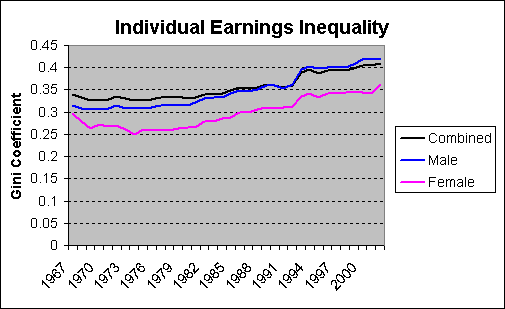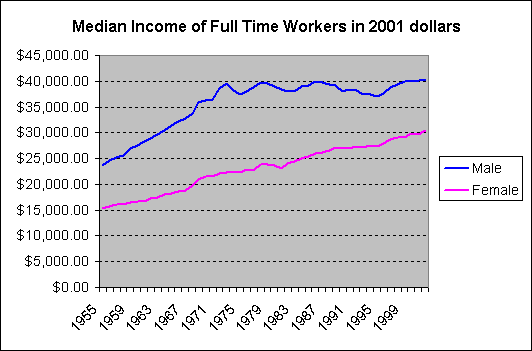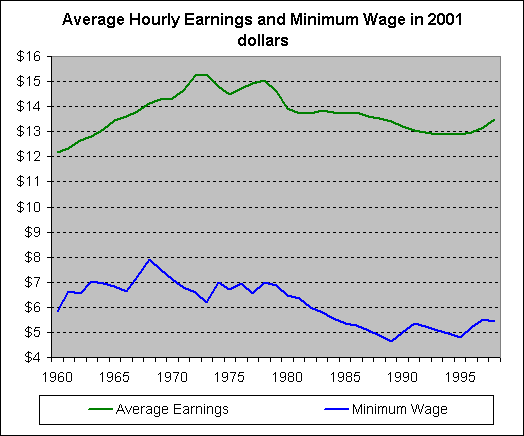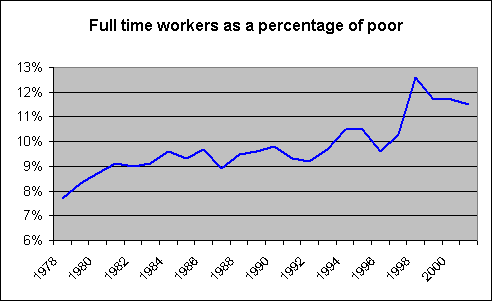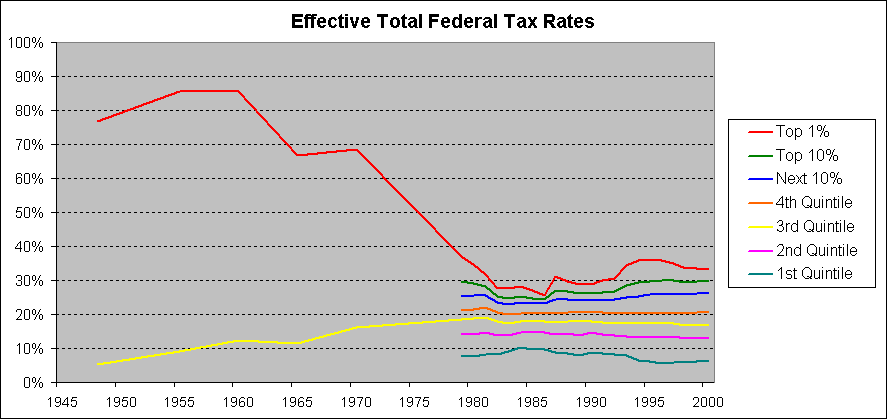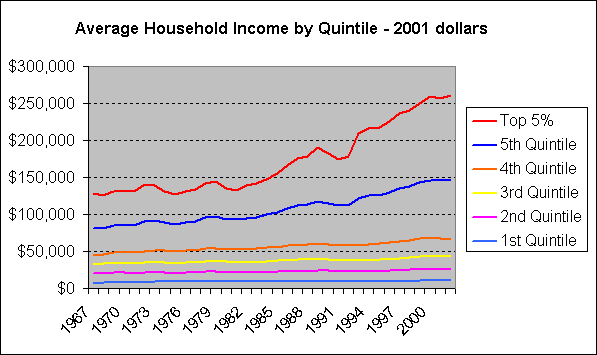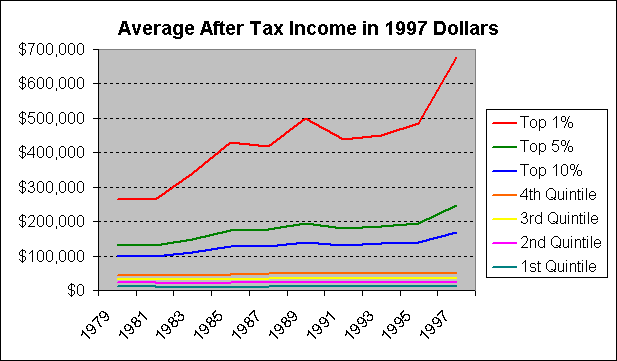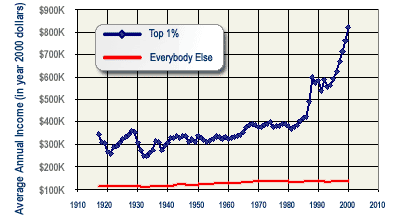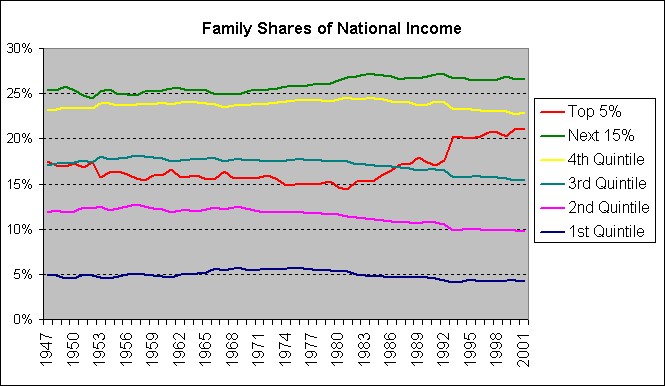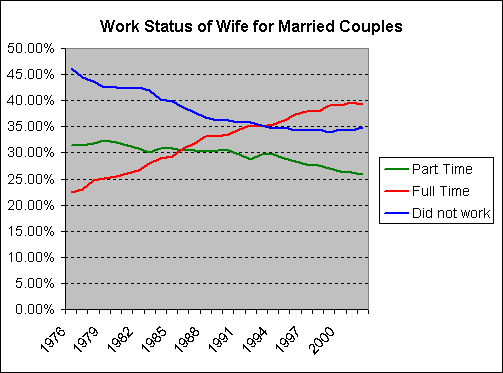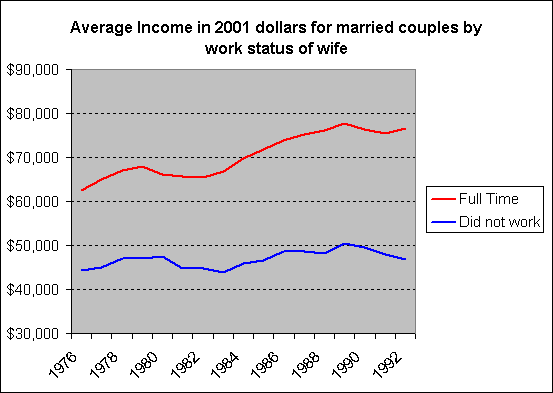
Here are the transcripts of first, President Obama's speech and then Dick Cheney's rebuttal speech that each address the questions about Guantanamo Bay detention facility and the use of waterboarding, given today, May, 21, 2009. I generally agree with President Obama's approach and philosophy on these matters and conversely have MANY problems and issues with Mr. Cheney's truth engineering. I am sure I will get around to dissecting his screed soon enough.
Barack Obama:
These are extraordinary times for our country. We are confronting an historic economic crisis. We are fighting two wars. We face a range of challenges that will define the way that Americans will live in the 21st century. There is no shortage of work to be done, or responsibilities to bear.
And we have begun to make progress. Just this week, we have taken steps to protect American consumers and homeowners, and to reform our system of government contracting so that we better protect our people while spending our money more wisely. The engines of our economy are slowly beginning to turn, and we are working toward historic reform of health care and energy. I welcome the hard work that has been done by the Congress on these and other issues.
In the midst of all these challenges, however, my single most important responsibility as President is to keep the American people safe. That is the first thing that I think about when I wake up in the morning. It is the last thing that I think about when I go to sleep at night.
This responsibility is only magnified in an era when an extremist ideology threatens our people, and technology gives a handful of terrorists the potential to do us great harm. We are less than eight years removed from the deadliest attack on American soil in our history. We know that al Qaeda is actively planning to attack us again. We know that this threat will be with us for a long time, and that we must use all elements of our power to defeat it.
Already, we have taken several steps to achieve that goal. For the first time since 2002, we are providing the necessary resources and strategic direction to take the fight to the extremists who attacked us on 9/11 in Afghanistan and Pakistan. We are investing in the 21st century military and intelligence capabilities that will allow us to stay one step ahead of a nimble enemy. We have re-energized a global non-proliferation regime to deny the world’s most dangerous people access to the world’s deadliest weapons, and launched an effort to secure all loose nuclear materials within four years. We are better protecting our border, and increasing our preparedness for any future attack or natural disaster. We are building new partnerships around the world to disrupt, dismantle, and defeat al Qaeda and its affiliates. And we have renewed American diplomacy so that we once again have the strength and standing to truly lead the world.
These steps are all critical to keeping America secure. But I believe with every fiber of my being that in the long run we also cannot keep this country safe unless we enlist the power of our most fundamental values. The documents that we hold in this very hall — the Declaration of Independence, the Constitution, the Bill of Rights — are not simply words written into aging parchment. They are the foundation of liberty and justice in this country, and a light that shines for all who seek freedom, fairness, equality and dignity in the world.
I stand here today as someone whose own life was made possible by these documents. My father came to our shores in search of the promise that they offered. My mother made me rise before dawn to learn of their truth when I lived as a child in a foreign land. My own American journey was paved by generations of citizens who gave meaning to those simple words — “to form a more perfect union.” I have studied the Constitution as a student; I have taught it as a teacher; I have been bound by it as a lawyer and legislator. I took an oath to preserve, protect and defend the Constitution as Commander-in-Chief, and as a citizen, I know that we must never — ever — turn our back on its enduring principles for expedience sake.
I make this claim not simply as a matter of idealism. We uphold our most cherished values not only because doing so is right, but because it strengthens our country and keeps us safe. Time and again, our values have been our best national security asset — in war and peace; in times of ease and in eras of upheaval.
Fidelity to our values is the reason why the United States of America grew from a small string of colonies under the writ of an empire to the strongest nation in the world.
It is the reason why enemy soldiers have surrendered to us in battle, knowing they’d receive better treatment from America’s armed forces than from their own government.
It is the reason why America has benefited from strong alliances that amplified our power, and drawn a sharp and moral contrast with our adversaries.
It is the reason why we’ve been able to overpower the iron fist of fascism, outlast the iron curtain of communism, and enlist free nations and free people everywhere in common cause and common effort.
From Europe to the Pacific, we have been a nation that has shut down torture chambers and replaced tyranny with the rule of law. That is who we are. And where terrorists offer only the injustice of disorder and destruction, America must demonstrate that our values and institutions are more resilient than a hateful ideology.
After 9/11, we knew that we had entered a new era — that enemies who did not abide by any law of war would present new challenges to our application of the law; that our government would need new tools to protect the American people, and that these tools would have to allow us to prevent attacks instead of simply prosecuting those who try to carry them out.
Unfortunately, faced with an uncertain threat, our government made a series of hasty decisions. And I believe that those decisions were motivated by a sincere desire to protect the American people. But I also believe that — too often — our government made decisions based upon fear rather than foresight, and all too often trimmed facts and evidence to fit ideological predispositions. Instead of strategically applying our power and our principles, we too often set those principles aside as luxuries that we could no longer afford. And in this season of fear, too many of us — Democrats and Republicans; politicians, journalists and citizens — fell silent.
In other words, we went off course. And this is not my assessment alone. It was an assessment that was shared by the American people, who nominated candidates for President from both major parties who, despite our many differences, called for a new approach — one that rejected torture, and recognized the imperative of closing the prison at Guantánamo Bay.
Now let me be clear: we are indeed at war with al Qaeda and its affiliates. We do need to update our institutions to deal with this threat. But we must do so with an abiding confidence in the rule of law and due process; in checks and balances and accountability. For reasons that I will explain, the decisions that were made over the last eight years established an ad hoc legal approach for fighting terrorism that was neither effective nor sustainable — a framework that failed to rely on our legal traditions and time-tested institutions; that failed to use our values as a compass. And that is why I took several steps upon taking office to better protect the American people.
First, I banned the use of so-called enhanced interrogation techniques by the United States of America.
I know some have argued that brutal methods like water-boarding were necessary to keep us safe. I could not disagree more. As Commander-in-Chief, I see the intelligence, I bear responsibility for keeping this country safe, and I reject the assertion that these are the most effective means of interrogation. What’s more, they undermine the rule of law. They alienate us in the world. They serve as a recruitment tool for terrorists, and increase the will of our enemies to fight us, while decreasing the will of others to work with America. They risk the lives of our troops by making it less likely that others will surrender to them in battle, and more likely that Americans will be mistreated if they are captured. In short, they did not advance our war and counter-terrorism efforts — they undermined them, and that is why I ended them once and for all.
The arguments against these techniques did not originate from my Administration. As Senator McCain once said, torture “serves as a great propaganda tool for those who recruit people to fight against us.” And even under President Bush, there was recognition among members of his Administration — including a Secretary of State, other senior officials, and many in the military and intelligence community — that those who argued for these tactics were on the wrong side of the debate, and the wrong side of history. We must leave these methods where they belong — in the past. They are not who we are. They are not America.
The second decision that I made was to order the closing of the prison camp at Guantánamo Bay.
For over seven years, we have detained hundreds of people at Guantánamo. During that time, the system of Military Commissions at Guantánamo succeeded in convicting a grand total of three suspected terrorists. Let me repeat that: three convictions in over seven years. Instead of bringing terrorists to justice, efforts at prosecution met setbacks, cases lingered on, and in 2006 the Supreme Court invalidated the entire system. Meanwhile, over five hundred and twenty-five detainees were released from Guantánamo under the Bush Administration. Let me repeat that: two-thirds of the detainees were released before I took office and ordered the closure of Guantánamo.
There is also no question that Guantánamo set back the moral authority that is America’s strongest currency in the world. Instead of building a durable framework for the struggle against al Qaeda that drew upon our deeply held values and traditions, our government was defending positions that undermined the rule of law. Indeed, part of the rationale for establishing Guantánamo in the first place was the misplaced notion that a prison there would be beyond the law — a proposition that the Supreme Court soundly rejected. Meanwhile, instead of serving as a tool to counter-terrorism, Guantánamo became a symbol that helped al Qaeda recruit terrorists to its cause. Indeed, the existence of Guantánamo likely created more terrorists around the world than it ever detained.
So the record is clear: rather than keep us safer, the prison at Guantánamo has weakened American national security. It is a rallying cry for our enemies. It sets back the willingness of our allies to work with us in fighting an enemy that operates in scores of countries. By any measure, the costs of keeping it open far exceed the complications involved in closing it. That is why I argued that it should be closed throughout my campaign. And that is why I ordered it closed within one year.
The third decision that I made was to order a review of all the pending cases at Guantánamo.
I knew when I ordered Guantánamo closed that it would be difficult and complex. There are 240 people there who have now spent years in legal limbo. In dealing with this situation, we do not have the luxury of starting from scratch. We are cleaning up something that is — quite simply — a mess; a misguided experiment that has left in its wake a flood of legal challenges that my Administration is forced to deal with on a constant basis, and that consumes the time of government officials whose time should be spent on better protecting our country.
Indeed, the legal challenges that have sparked so much debate in recent weeks in Washington would be taking place whether or not I decided to close Guantánamo. For example, the court order to release seventeen Uighur detainees took place last fall — when George Bush was President. The Supreme Court that invalidated the system of prosecution at Guantánamo in 2006 was overwhelmingly appointed by Republican Presidents. In other words, the problem of what to do with Guantánamo detainees was not caused by my decision to close the facility; the problem exists because of the decision to open Guantánamo in the first place.
There are no neat or easy answers here. But I can tell you that the wrong answer is to pretend that this problem will go away if we maintain an unsustainable status quo. As President, I refuse to allow this problem to fester. Our security interests won’t permit it. Our courts won’t allow it. And neither should our conscience.
Now, over the last several weeks, we have seen a return of the politicization of these issues that have characterized the last several years. I understand that these problems arouse passions and concerns. They should. We are confronting some of the most complicated questions that a democracy can face. But I have no interest in spending our time re-litigating the policies of the last eight years. I want to solve these problems, and I want to solve them together as Americans.
And we will be ill-served by some of the fear-mongering that emerges whenever we discuss this issue. Listening to the recent debate, I’ve heard words that are calculated to scare people rather than educate them; words that have more to do with politics than protecting our country. So I want to take this opportunity to lay out what we are doing, and how we intend to resolve these outstanding issues. I will explain how each action that we are taking will help build a framework that protects both the American people and the values that we hold dear. And I will focus on two broad areas: first, issues relating to Guantánamo and our detention policy; second, issues relating to security and transparency.
Let me begin by disposing of one argument as plainly as I can: we are not going to release anyone if it would endanger our national security, nor will we release detainees within the United States who endanger the American people. Where demanded by justice and national security, we will seek to transfer some detainees to the same type of facilities in which we hold all manner of dangerous and violent criminals within our borders — highly secure prisons that ensure the public safety. As we make these decisions, bear in mind the following fact: nobody has ever escaped from one of our federal “supermax” prisons, which hold hundreds of convicted terrorists. As Senator Lindsey Graham said: “The idea that we cannot find a place to securely house 250-plus detainees within the United States is not rational.”
We are currently in the process of reviewing each of the detainee cases at Guantánamo to determine the appropriate policy for dealing with them. As we do so, we are acutely aware that under the last Administration, detainees were released only to return to the battlefield. That is why we are doing away with the poorly planned, haphazard approach that let those detainees go in the past. Instead, we are treating these cases with the care and attention that the law requires and our security demands. Going forward, these cases will fall into five distinct categories.
First, when feasible, we will try those who have violated American criminal laws in federal courts — courts provided for by the United States Constitution. Some have derided our federal courts as incapable of handling the trials of terrorists. They are wrong. Our courts and juries of our citizens are tough enough to convict terrorists, and the record makes that clear. Ramzi Yousef tried to blow up the World Trade Center — he was convicted in our courts, and is serving a life sentence in U.S. prison. Zacarias Moussaoui has been identified as the 20th 9/11 hijacker — he was convicted in our courts, and he too is serving a life sentence in prison. If we can try those terrorists in our courts and hold them in our prisons, then we can do the same with detainees from Guantánamo.
Recently, we prosecuted and received a guilty plea from a detainee – [Ali] al-Marri — in federal court after years of legal confusion. We are preparing to transfer another detainee to the Southern District of New York, where he will face trial on charges related to the 1998 bombings of our embassies in Kenya and Tanzania — bombings that killed over 200 people. Preventing this detainee from coming to our shores would prevent his trial and conviction. And after over a decade, it is time to finally see that justice is served, and that is what we intend to do.
The second category of cases involves detainees who violate the laws of war and are best tried through Military Commissions. Military commissions have a history in the United States dating back to George Washington and the Revolutionary War. They are an appropriate venue for trying detainees for violations of the laws of war. They allow for the protection of sensitive sources and methods of intelligence-gathering; for the safety and security of participants; and for the presentation of evidence gathered from the battlefield that cannot be effectively presented in federal Courts.
Now, some have suggested that this represents a reversal on my part. They are wrong. In 2006, I did strongly oppose legislation proposed by the Bush Administration and passed by the Congress because it failed to establish a legitimate legal framework, with the kind of meaningful due process and rights for the accused that could stand up on appeal. I did, however, support the use of military commissions to try detainees, provided there were several reforms. And those are the reforms that we are making.
Instead of using the flawed Commissions of the last seven years, my Administration is bringing our Commissions in line with the rule of law. The rule will no longer permit us to use as evidence statements that have been obtained using cruel, inhuman, or degrading interrogation methods. We will no longer place the burden to prove that hearsay is unreliable on the opponent of the hearsay. And we will give detainees greater latitude in selecting their own counsel, and more protections if they refuse to testify. These reforms — among others — will make our Military Commissions a more credible and effective means of administering justice, and I will work with Congress and legal authorities across the political spectrum on legislation to ensure that these Commissions are fair, legitimate, and effective.
The third category of detainees includes those who we have been ordered released by the courts. Let me repeat what I said earlier: this has absolutely nothing to do with my decision to close Guantánamo. It has to do with the rule of law. The courts have found that there is no legitimate reason to hold twenty-one of the people currently held at Guantánamo. Twenty of these findings took place before I came into office. The United States is a nation of laws, and we must abide by these rulings.
The fourth category of cases involves detainees who we have determined can be transferred safely to another country. So far, our review team has approved fifty detainees for transfer. And my Administration is in ongoing discussions with a number of other countries about the transfer of detainees to their soil for detention and rehabilitation.
Finally, there remains the question of detainees at Guantánamo who cannot be prosecuted yet who pose a clear danger to the American people.
I want to be honest: this is the toughest issue we will face. We are going to exhaust every avenue that we have to prosecute those at Guantánamo who pose a danger to our country. But even when this process is complete, there may be a number of people who cannot be prosecuted for past crimes, but who nonetheless pose a threat to the security of the United States. Examples of that threat include people who have received extensive explosives training at al Qaeda training camps, commanded Taliban troops in battle, expressed their allegiance to Osama bin Laden, or otherwise made it clear that they want to kill Americans. These are people who, in effect, remain at war with the United States.
As I said, I am not going to release individuals who endanger the American people. Al Qaeda terrorists and their affiliates are at war with the United States, and those that we capture — like other prisoners of war — must be prevented from attacking us again. However, we must recognize that these detention policies cannot be unbounded. That is why my Administration has begun to reshape these standards to ensure they are in line with the rule of law. We must have clear, defensible and lawful standards for those who fall in this category. We must have fair procedures so that we don’t make mistakes. We must have a thorough process of periodic review, so that any prolonged detention is carefully evaluated and justified.
I know that creating such a system poses unique challenges. Other countries have grappled with this question, and so must we. But I want to be very clear that our goal is to construct a legitimate legal framework for Guantánamo detainees — not to avoid one. In our constitutional system, prolonged detention should not be the decision of any one man. If and when we determine that the United States must hold individuals to keep them from carrying out an act of war, we will do so within a system that involves judicial and congressional oversight. And so going forward, my Administration will work with Congress to develop an appropriate legal regime so that our efforts are consistent with our values and our Constitution.
As our efforts to close Guantánamo move forward, I know that the politics in Congress will be difficult. These issues are fodder for 30-second commercials and direct mail pieces that are designed to frighten. I get it. But if we continue to make decisions from within a climate of fear, we will make more mistakes. And if we refuse to deal with these issues today, then I guarantee you that they will be an albatross around our efforts to combat terrorism in the future. I have confidence that the American people are more interested in doing what is right to protect this country than in political posturing. I am not the only person in this city who swore an oath to uphold the Constitution — so did each and every member of Congress. Together we have a responsibility to enlist our values in the effort to secure our people, and to leave behind the legacy that makes it easier for future Presidents to keep this country safe.
The second set of issues that I want to discuss relates to security and transparency.
National security requires a delicate balance. Our democracy depends upon transparency, but some information must be protected from public disclosure for the sake of our security — for instance, the movements of our troops; our intelligence-gathering; or the information we have about a terrorist organization and its affiliates. In these and other cases, lives are at stake.
Several weeks ago, as part of an ongoing court case, I released memos issued by the previous Administration’s Office of Legal Counsel. I did not do this because I disagreed with the enhanced interrogation techniques that those memos authorized, or because I reject their legal rationale — although I do on both counts. I released the memos because the existence of that approach to interrogation was already widely known, the Bush Administration had acknowledged its existence, and I had already banned those methods. The argument that somehow by releasing those memos, we are providing terrorists with information about how they will be interrogated is unfounded — we will not be interrogating terrorists using that approach, because that approach is now prohibited.
In short, I released these memos because there was no overriding reason to protect them. And the ensuing debate has helped the American people better understand how these interrogation methods came to be authorized and used.
On the other hand, I recently opposed the release of certain photographs that were taken of detainees by U.S. personnel between 2002 and 2004. Individuals who violated standards of behavior in these photos have been investigated and held accountable. There is no debate as to whether what is reflected in those photos is wrong, and nothing has been concealed to absolve perpetrators of crimes. However, it was my judgment — informed by my national security team — that releasing these photos would inflame anti-American opinion, and allow our enemies to paint U.S. troops with a broad, damning and inaccurate brush, endangering them in theaters of war.
In short, there is a clear and compelling reason to not release these particular photos. There are nearly 200,000 Americans who are serving in harm’s way, and I have a solemn responsibility for their safety as Commander-in-Chief. Nothing would be gained by the release of these photos that matters more than the lives of our young men and women serving in harm’s way.
In each of these cases, I had to strike the right balance between transparency and national security. This balance brings with it a precious responsibility. And there is no doubt that the American people have seen this balance tested. In the images from Abu Ghraib and the brutal interrogation techniques made public long before I was President, the American people learned of actions taken in their name that bear no resemblance to the ideals that generations of Americans have fought for. And whether it was the run-up to the Iraq War or the revelation of secret programs, Americans often felt like part of the story had been unnecessarily withheld from them. That causes suspicion to build up. That leads to a thirst for accountability.
I ran for President promising transparency, and I meant what I said. That is why, whenever possible, we will make information available to the American people so that they can make informed judgments and hold us accountable. But I have never argued — and never will — that our most sensitive national security matters should be an open book. I will never abandon — and I will vigorously defend — the necessity of classification to defend our troops at war; to protect sources and methods; and to safeguard confidential actions that keep the American people safe. And so, whenever we cannot release certain information to the public for valid national security reasons, I will insist that there is oversight of my actions — by Congress or by the courts.
We are launching a review of current policies by all of those agencies responsible for the classification of documents to determine where reforms are possible, and to assure that the other branches of government will be in a position to review executive branch decisions on these matters. Because in our system of checks and balances, someone must always watch over the watchers — especially when it comes to sensitive information.
Along those same lines, my Administration is also confronting challenges to what is known as the “State Secrets” privilege. This is a doctrine that allows the government to challenge legal cases involving secret programs. It has been used by many past Presidents — Republican and Democrat — for many decades. And while this principle is absolutely necessary to protect national security, I am concerned that it has been over-used. We must not protect information merely because it reveals the violation of a law or embarrasses the government. That is why my Administration is nearing completion of a thorough review of this practice.
We plan to embrace several principles for reform. We will apply a stricter legal test to material that can be protected under the State Secrets privilege. We will not assert the privilege in court without first following a formal process, including review by a Justice Department committee and the personal approval of the Attorney General. Finally, each year we will voluntarily report to Congress when we have invoked the privilege and why, because there must be proper oversight of our actions.
On all of these matters related to the disclosure of sensitive information, I wish I could say that there is a simple formula. But there is not. These are tough calls involving competing concerns, and they require a surgical approach. But the common thread that runs through all of my decisions is simple: we will safeguard what we must to protect the American people, but we will also ensure the accountability and oversight that is the hallmark of our constitutional system. I will never hide the truth because it is uncomfortable. I will deal with Congress and the courts as co-equal branches of government. I will tell the American people what I know and don’t know, and when I release something publicly or keep something secret, I will tell you why.
In all of the areas that I have discussed today, the policies that I have proposed represent a new direction from the last eight years. To protect the American people and our values, we have banned enhanced interrogation techniques. We are closing the prison at Guantánamo. We are reforming Military Commissions, and we will pursue a new legal regime to detain terrorists. We are declassifying more information and embracing more oversight of our actions, and narrowing our use of the State Secrets privilege. These are dramatic changes that will put our approach to national security on a surer, safer and more sustainable footing, and their implementation will take time.
There is a core principle that we will apply to all of our actions: even as we clean up the mess at Guantánamo, we will constantly re-evaluate our approach, subject our decisions to review from the other branches of government, and seek the strongest and most sustainable legal framework for addressing these issues in the long-term. By doing that, we can leave behind a legacy that outlasts my Administration, and that endures for the next President and the President after that; a legacy that protects the American people, and enjoys broad legitimacy at home and abroad.
That is what I mean when I say that we need to focus on the future. I recognize that many still have a strong desire to focus on the past. When it comes to the actions of the last eight years, some Americans are angry; others want to re-fight debates that have been settled, most clearly at the ballot box in November. And I know that these debates lead directly to a call for a fuller accounting, perhaps through an Independent Commission.
I have opposed the creation of such a Commission because I believe that our existing democratic institutions are strong enough to deliver accountability. The Congress can review abuses of our values, and there are ongoing inquiries by the Congress into matters like enhanced interrogation techniques. The Department of Justice and our courts can work through and punish any violations of our laws.
I understand that it is no secret that there is a tendency in Washington to spend our time pointing fingers at one another. And our media culture feeds the impulses that lead to a good fight. Nothing will contribute more to that than an extended re-litigation of the last eight years. Already, we have seen how that kind of effort only leads those in Washington to different sides laying blame, and can distract us from focusing our time, our effort, and our politics on the challenges of the future.
We see that, above all, in how the recent debate has been obscured by two opposite and absolutist ends. On one side of the spectrum, there are those who make little allowance for the unique challenges posed by terrorism, and who would almost never put national security over transparency. On the other end of the spectrum, there are those who embrace a view that can be summarized in two words: “anything goes.” Their arguments suggest that the ends of fighting terrorism can be used to justify any means, and that the President should have blanket authority to do whatever he wants — provided that it is a President with whom they agree.
Both sides may be sincere in their views, but neither side is right. The American people are not absolutist, and they don’t elect us to impose a rigid ideology on our problems. They know that we need not sacrifice our security for our values, nor sacrifice our values for our security, so long as we approach difficult questions with honesty, and care, and a dose of common sense. That, after all, is the unique genius of America. That is the challenge laid down by our Constitution. That has been the source of our strength through the ages. That is what makes the United States of America different as a nation.
I can stand here today, as President of the United States, and say without exception or equivocation that we do not torture, and that we will vigorously protect our people while forging a strong and durable framework that allows us to fight terrorism while abiding by the rule of law. Make no mistake: if we fail to turn the page on the approach that was taken over the past several years, then I will not be able to say that as President. And if we cannot stand for those core values, then we are not keeping faith with the documents that are enshrined in this hall.
The Framers who drafted the Constitution could not have foreseen the challenges that have unfolded over the last two hundred and twenty two years. But our Constitution has endured through secession and civil rights — through World War and Cold War — because it provides a foundation of principles that can be applied pragmatically; it provides a compass that can help us find our way. It hasn’t always been easy. We are an imperfect people. Every now and then, there are those who think that America’s safety and success requires us to walk away from the sacred principles enshrined in this building. We hear such voices today. But the American people have resisted that temptation. And though we have made our share of mistakes and course corrections, we have held fast to the principles that have been the source of our strength, and a beacon to the world.
Now, this generation faces a great test in the specter of terrorism. Unlike the Civil War or World War II, we cannot count on a surrender ceremony to bring this journey to an end. Right now, in distant training camps and in crowded cities, there are people plotting to take American lives. That will be the case a year from now, five years from now, and — in all probability — ten years from now. Neither I nor anyone else can standing here today can say that there will not be another terrorist attack that takes American lives. But I can say with certainty that my Administration — along with our extraordinary troops and the patriotic men and women who defend our national security — will do everything in our power to keep the American people safe. And I do know with certainty that we can defeat al Qaeda. Because the terrorists can only succeed if they swell their ranks and alienate America from our allies, and they will never be able to do that if we stay true to who we are; if we forge tough and durable approaches to fighting terrorism that are anchored in our timeless ideals.
This must be our common purpose. I ran for President because I believe that we cannot solve the challenges of our time unless we solve them together. We will not be safe if we see national security as a wedge that divides America — it can and must be a cause that unites us as one people, as one nation. We have done so before in times that were more perilous than ours. We will do so once again. Thank you, God bless you, and God bless the United States of America.
END
----------------------------------------------------------------------------------
Dick Cheney:
Thank you all very much, and Arthur, thank you for that introduction. It's good to be back at AEI, where we have many friends. Lynne is one of your longtime scholars, and I'm looking forward to spending more time here myself as a returning trustee. What happened was, they were looking for a new member of the board of trustees, and they asked me to head up the search committee.
I first came to AEI after serving at the Pentagon, and departed only after a very interesting job offer came along. I had no expectation of returning to public life, but my career worked out a little differently. Those eight years as vice president were quite a journey, and during a time of big events and great decisions, I don't think I missed much.
Being the first vice president who had also served as secretary of defense, naturally my duties tended toward national security. I focused on those challenges day to day, mostly free from the usual political distractions. I had the advantage of being a vice president content with the responsibilities I had, and going about my work with no higher ambition. Today, I'm an even freer man. Your kind invitation brings me here as a private citizen - a career in politics behind me, no elections to win or lose, and no favor to seek.
The responsibilities we carried belong to others now. And though I'm not here to speak for George W. Bush, I am certain that no one wishes the current administration more success in defending the country than we do. We understand the complexities of national security decisions. We understand the pressures that confront a president and his advisers. Above all, we know what is at stake. And though administrations and policies have changed, the stakes for America have not changed.
Right now there is considerable debate in this city about the measures our administration took to defend the American people. Today I want to set forth the strategic thinking behind our policies. I do so as one who was there every day of the Bush Administration -who supported the policies when they were made, and without hesitation would do so again in the same circumstances.
When President Obama makes wise decisions, as I believe he has done in some respects on Afghanistan, and in reversing his plan to release incendiary photos, he deserves our support. And when he faults or mischaracterizes the national security decisions we made in the Bush years, he deserves an answer. The point is not to look backward. Now and for years to come, a lot rides on our President's understanding of the security policies that preceded him. And whatever choices he makes concerning the defense of this country, those choices should not be based on slogans and campaign rhetoric, but on a truthful telling of history.
Our administration always faced its share of criticism, and from some quarters it was always intense. That was especially so in the later years of our term, when the dangers were as serious as ever, but the sense of general alarm after September 11th, 2001 was a fading memory. Part of our responsibility, as we saw it, was not to forget the terrible harm that had been done to America ... and not to let 9/11 become the prelude to something much bigger and far worse.
That attack itself was, of course, the most devastating strike in a series of terrorist plots carried out against Americans at home and abroad. In 1993, terrorists bombed the World Trade Center, hoping to bring down the towers with a blast from below. The attacks continued in 1995, with the bombing of U.S. facilities in Riyadh, Saudi Arabia; the killing of servicemen at Khobar Towers in 1996; the attack on our embassies in East Africa in 1998; the murder of American sailors on the USS Cole in 2000; and then the hijackings of 9/11, and all the grief and loss we suffered on that day.
Nine-eleven caused everyone to take a serious second look at threats that had been gathering for a while, and enemies whose plans were getting bolder and more sophisticated. Throughout the 90s, America had responded to these attacks, if at all, on an ad hoc basis. The first attack on the World Trade Center was treated as a law enforcement problem, with everything handled after the fact - crime scene, arrests, indictments, convictions, prison sentences, case closed.
That's how it seemed from a law enforcement perspective, at least - but for the terrorists the case was not closed. For them, it was another offensive strike in their ongoing war against the United States. And it turned their minds to even harder strikes with higher casualties. Nine-eleven made necessary a shift of policy, aimed at a clear strategic threat - what the Congress called "an unusual and extraordinary threat to the national security and foreign policy of the United States." From that moment forward, instead of merely preparing to round up the suspects and count up the victims after the next attack, we were determined to prevent attacks in the first place.
We could count on almost universal support back then, because everyone understood the environment we were in. We'd just been hit by a foreign enemy - leaving 3,000 Americans dead, more than we lost at Pearl Harbor. In Manhattan, we were staring at 16 acres of ashes. The Pentagon took a direct hit, and the Capitol or the White House were spared only by the Americans on Flight 93, who died bravely and defiantly.
Everyone expected a follow-on attack, and our job was to stop it. We didn't know what was coming next, but everything we did know in that autumn of 2001 looked bad. This was the world in which al-Qaeda was seeking nuclear technology, and A. Q. Khan was selling nuclear technology on the black market. We had the anthrax attack from an unknown source. We had the training camps of Afghanistan, and dictators like Saddam Hussein with known ties to Mideast terrorists.
These are just a few of the problems we had on our hands. And foremost on our minds was the prospect of the very worst coming to pass - a 9/11 with nuclear weapons.
For me, one of the defining experiences was the morning of 9/11 itself. As you might recall, I was in my office in that first hour, when radar caught sight of an airliner heading toward the White House at 500 miles an hour. That was Flight 77, the one that ended up hitting the Pentagon. With the plane still inbound, Secret Service agents came into my office and said we had to leave, now. A few moments later I found myself in a fortified White House command post somewhere down below.
There in the bunker came the reports and images that so many Americans remember from that day - word of the crash in Pennsylvania, the final phone calls from hijacked planes, the final horror for those who jumped to their death to escape burning alive. In the years since, I've heard occasional speculation that I'm a different man after 9/11. I wouldn't say that. But I'll freely admit that watching a coordinated, devastating attack on our country from an underground bunker at the White House can affect how you view your responsibilities.
To make certain our nation country never again faced such a day of horror, we developed a comprehensive strategy, beginning with far greater homeland security to make the United States a harder target. But since wars cannot be won on the defensive, we moved decisively against the terrorists in their hideouts and sanctuaries, and committed to using every asset to take down their networks. We decided, as well, to confront the regimes that sponsored terrorists, and to go after those who provide sanctuary, funding, and weapons to enemies of the United States. We turned special attention to regimes that had the capacity to build weapons of mass destruction, and might transfer such weapons to terrorists.
We did all of these things, and with bipartisan support put all these policies in place. It has resulted in serious blows against enemy operations ... the take-down of the A.Q. Khan network ... and the dismantling of Libya's nuclear program. It's required the commitment of many thousands of troops in two theaters of war, with high points and some low points in both Iraq and Afghanistan - and at every turn, the people of our military carried the heaviest burden. Well over seven years into the effort, one thing we know is that the enemy has spent most of this time on the defensive - and every attempt to strike inside the United States has failed.
So we're left to draw one of two conclusions - and here is the great dividing line in our current debate over national security. You can look at the facts and conclude that the comprehensive strategy has worked, and therefore needs to be continued as vigilantly as ever. Or you can look at the same set of facts and conclude that 9/11 was a one-off event - coordinated, devastating, but also unique and not sufficient to justify a sustained wartime effort. Whichever conclusion you arrive at, it will shape your entire view of the last seven years, and of the policies necessary to protect America for years to come.
The key to any strategy is accurate intelligence, and skilled professionals to get that information in time to use it. In seeking to guard this nation against the threat of catastrophic violence, our Administration gave intelligence officers the tools and lawful authority they needed to gain vital information. We didn't invent that authority. It is drawn from Article Two of the Constitution. And it was given specificity by the Congress after 9/11, in a Joint Resolution authorizing "all necessary and appropriate force" to protect the American people.
Our government prevented attacks and saved lives through the Terrorist Surveillance Program, which let us intercept calls and track contacts between al-Qaeda operatives and persons inside the United States. The program was top secret, and for good reason, until the editors of the New York Times got it and put it on the front page. After 9/11, the Times had spent months publishing the pictures and the stories of everyone killed by al-Qaeda on 9/11. Now here was that same newspaper publishing secrets in a way that could only help al-Qaeda. It impressed the Pulitzer committee, but it damn sure didn't serve the interests of our country, or the safety of our people.
In the years after 9/11, our government also understood that the safety of the country required collecting information known only to the worst of the terrorists. And in a few cases, that information could be gained only through tough interrogations.
In top secret meetings about enhanced interrogations, I made my own beliefs clear. I was and remain a strong proponent of our enhanced interrogation program. The interrogations were used on hardened terrorists after other efforts failed. They were legal, essential, justified, successful, and the right thing to do. The intelligence officers who questioned the terrorists can be proud of their work and proud of the results, because they prevented the violent death of thousands, if not hundreds of thousands, of innocent people.
Our successors in office have their own views on all of these matters.
By presidential decision, last month we saw the selective release of documents relating to enhanced interrogations. This is held up as a bold exercise in open government, honoring the public's right to know. We're informed, as well, that there was much agonizing over this decision.
Yet somehow, when the soul-searching was done and the veil was lifted on the policies of the Bush administration, the public was given less than half the truth. The released memos were carefully redacted to leave out references to what our government learned through the methods in question. Other memos, laying out specific terrorist plots that were averted, apparently were not even considered for release. For reasons the administration has yet to explain, they believe the public has a right to know the method of the questions, but not the content of the answers.
Over on the left wing of the president's party, there appears to be little curiosity in finding out what was learned from the terrorists. The kind of answers they're after would be heard before a so-called "Truth Commission." Some are even demanding that those who recommended and approved the interrogations be prosecuted, in effect treating political disagreements as a punishable offense, and political opponents as criminals. It's hard to imagine a worse precedent, filled with more possibilities for trouble and abuse, than to have an incoming administration criminalize the policy decisions of its predecessors.
Apart from doing a serious injustice to intelligence operators and lawyers who deserve far better for their devoted service, the danger here is a loss of focus on national security, and what it requires. I would advise the administration to think very carefully about the course ahead. All the zeal that has been directed at interrogations is utterly misplaced. And staying on that path will only lead our government further away from its duty to protect the American people.
One person who by all accounts objected to the release of the interrogation memos was the Director of Central Intelligence, Leon Panetta. He was joined in that view by at least four of his predecessors. I assume they felt this way because they understand the importance of protecting intelligence sources, methods, and personnel. But now that this once top-secret information is out for all to see - including the enemy - let me draw your attention to some points that are routinely overlooked.
It is a fact that only detainees of the highest intelligence value were ever subjected to enhanced interrogation. You've heard endlessly about waterboarding. It happened to three terrorists. One of them was Khalid Sheikh Muhammed - the mastermind of 9/11, who has also boasted about beheading Daniel Pearl.
We had a lot of blind spots after the attacks on our country. We didn't know about al-Qaeda's plans, but Khalid Sheikh Muhammed and a few others did know. And with many thousands of innocent lives potentially in the balance, we didn't think it made sense to let the terrorists answer questions in their own good time, if they answered them at all.
Maybe you've heard that when we captured KSM, he said he would talk as soon as he got to New York City and saw his lawyer. But like many critics of interrogations, he clearly misunderstood the business at hand. American personnel were not there to commence an elaborate legal proceeding, but to extract information from him before al-Qaeda could strike again and kill more of our people.
In public discussion of these matters, there has been a strange and sometimes willful attempt to conflate what happened at Abu Ghraib prison with the top secret program of enhanced interrogations. At Abu Ghraib, a few sadistic prison guards abused inmates in violation of American law, military regulations, and simple decency. For the harm they did, to Iraqi prisoners and to America's cause, they deserved and received Army justice. And it takes a deeply unfair cast of mind to equate the disgraces of Abu Ghraib with the lawful, skillful, and entirely honorable work of CIA personnel trained to deal with a few malevolent men.
Even before the interrogation program began, and throughout its operation, it was closely reviewed to ensure that every method used was in full compliance with the Constitution, statutes, and treaty obligations. On numerous occasions, leading members of Congress, including the current speaker of the House, were briefed on the program and on the methods.
Yet for all these exacting efforts to do a hard and necessary job and to do it right, we hear from some quarters nothing but feigned outrage based on a false narrative. In my long experience in Washington, few matters have inspired so much contrived indignation and phony moralizing as the interrogation methods applied to a few captured terrorists.
I might add that people who consistently distort the truth in this way are in no position to lecture anyone about "values." Intelligence officers of the United States were not trying to rough up some terrorists simply to avenge the dead of 9/11. We know the difference in this country between justice and vengeance. Intelligence officers were not trying to get terrorists to confess to past killings; they were trying to prevent future killings. From the beginning of the program, there was only one focused and all-important purpose. We sought, and we in fact obtained, specific information on terrorist plans.
Those are the basic facts on enhanced interrogations. And to call this a program of torture is to libel the dedicated professionals who have saved American lives, and to cast terrorists and murderers as innocent victims. What's more, to completely rule out enhanced interrogation methods in the future is unwise in the extreme. It is recklessness cloaked in righteousness, and would make the American people less safe.
The administration seems to pride itself on searching for some kind of middle ground in policies addressing terrorism. They may take comfort in hearing disagreement from opposite ends of the spectrum. If liberals are unhappy about some decisions, and conservatives are unhappy about other decisions, then it may seem to them that the President is on the path of sensible compromise. But in the fight against terrorism, there is no middle ground, and half-measures keep you half exposed. You cannot keep just some nuclear-armed terrorists out of the United States, you must keep every nuclear-armed terrorist out of the United States. Triangulation is a political strategy, not a national security strategy. When just a single clue that goes unlearned ... one lead that goes unpursued ... can bring on catastrophe - it's no time for splitting differences. There is never a good time to compromise when the lives and safety of the American people are in the balance.
Behind the overwrought reaction to enhanced interrogations is a broader misconception about the threats that still face our country. You can sense the problem in the emergence of euphemisms that strive to put an imaginary distance between the American people and the terrorist enemy. Apparently using the term "war" where terrorists are concerned is starting to feel a bit dated. So henceforth we're advised by the administration to think of the fight against terrorists as, quote, "Overseas contingency operations." In the event of another terrorist attack on America, the Homeland Security Department assures us it will be ready for this, quote, "man-made disaster" - never mind that the whole Department was created for the purpose of protecting Americans from terrorist attack.
And when you hear that there are no more, quote, "enemy combatants," as there were back in the days of that scary war on terror, at first that sounds like progress. The only problem is that the phrase is gone, but the same assortment of killers and would-be mass murderers are still there. And finding some less judgmental or more pleasant-sounding name for terrorists doesn't change what they are - or what they would do if we let them loose.
On his second day in office, President Obama announced that he was closing the detention facility at Guantanamo. This step came with little deliberation and no plan. Now the President says some of these terrorists should be brought to American soil for trial in our court system. Others, he says, will be shipped to third countries. But so far, the United States has had little luck getting other countries to take hardened terrorists. So what happens then? Attorney General Holder and others have admitted that the United States will be compelled to accept a number of the terrorists here, in the homeland, and it has even been suggested US taxpayer dollars will be used to support them. On this one, I find myself in complete agreement with many in the President's own party. Unsure how to explain to their constituents why terrorists might soon be relocating into their states, these Democrats chose instead to strip funding for such a move out of the most recent war supplemental.
The administration has found that it's easy to receive applause in Europe for closing Guantanamo. But it's tricky to come up with an alternative that will serve the interests of justice and America's national security. Keep in mind that these are hardened terrorists picked up overseas since 9/11. The ones that were considered low-risk were released a long time ago. And among these, we learned yesterday, many were treated too leniently, because 1 in 7 cut a straight path back to their prior line of work and have conducted murderous attacks in the Middle East. I think the President will find, upon reflection, that to bring the worst of the worst terrorists inside the United States would be cause for great danger and regret in the years to come.
In the category of euphemism, the prizewinning entry would be a recent editorial in a familiar newspaper that referred to terrorists we've captured as, quote, "abducted." Here we have ruthless enemies of this country, stopped in their tracks by brave operatives in the service of America, and a major editorial page makes them sound like they were kidnap victims, picked up at random on their way to the movies.
It's one thing to adopt the euphemisms that suggest we're no longer engaged in a war. These are just words, and in the end it's the policies that matter most. You don't want to call them enemy combatants? Fine. Call them what you want - just don't bring them into the United States. Tired of calling it a war? Use any term you prefer. Just remember it is a serious step to begin unraveling some of the very policies that have kept our people safe since 9/11.
Another term out there that slipped into the discussion is the notion that American interrogation practices were a "recruitment tool" for the enemy. On this theory, by the tough questioning of killers, we have supposedly fallen short of our own values. This recruitment-tool theory has become something of a mantra lately, including from the President himself. And after a familiar fashion, it excuses the violent and blames America for the evil that others do. It's another version of that same old refrain from the Left, "We brought it on ourselves."
It is much closer to the truth that terrorists hate this country precisely because of the values we profess and seek to live by, not by some alleged failure to do so. Nor are terrorists or those who see them as victims exactly the best judges of America's moral standards, one way or the other.
Critics of our policies are given to lecturing on the theme of being consistent with American values. But no moral value held dear by the American people obliges public servants ever to sacrifice innocent lives to spare a captured terrorist from unpleasant things. And when an entire population is targeted by a terror network, nothing is more consistent with American values than to stop them.
As a practical matter, too, terrorists may lack much, but they have never lacked for grievances against the United States. Our belief in freedom of speech and religion ... our belief in equal rights for women ... our support for Israel ... our cultural and political influence in the world - these are the true sources of resentment, all mixed in with the lies and conspiracy theories of the radical clerics. These recruitment tools were in vigorous use throughout the 1990s, and they were sufficient to motivate the 19 recruits who boarded those planes on September 11th, 2001.
The United States of America was a good country before 9/11, just as we are today. List all the things that make us a force for good in the world - for liberty, for human rights, for the rational, peaceful resolution of differences - and what you end up with is a list of the reasons why the terrorists hate America. If fine speech-making, appeals to reason, or pleas for compassion had the power to move them, the terrorists would long ago have abandoned the field. And when they see the American government caught up in arguments about interrogations, or whether foreign terrorists have constitutional rights, they don't stand back in awe of our legal system and wonder whether they had misjudged us all along. Instead the terrorists see just what they were hoping for - our unity gone, our resolve shaken, our leaders distracted. In short, they see weakness and opportunity.
What is equally certain is this: The broad-based strategy set in motion by President Bush obviously had nothing to do with causing the events of 9/11. But the serious way we dealt with terrorists from then on, and all the intelligence we gathered in that time, had everything to do with preventing another 9/11 on our watch. The enhanced interrogations of high-value detainees and the terrorist surveillance program have without question made our country safer. Every senior official who has been briefed on these classified matters knows of specific attacks that were in the planning stages and were stopped by the programs we put in place.
This might explain why President Obama has reserved unto himself the right to order the use of enhanced interrogation should he deem it appropriate. What value remains to that authority is debatable, given that the enemy now knows exactly what interrogation methods to train against, and which ones not to worry about. Yet having reserved for himself the authority to order enhanced interrogation after an emergency, you would think that President Obama would be less disdainful of what his predecessor authorized after 9/11. It's almost gone unnoticed that the president has retained the power to order the same methods in the same circumstances. When they talk about interrogations, he and his administration speak as if they have resolved some great moral dilemma in how to extract critical information from terrorists. Instead they have put the decision off, while assigning a presumption of moral superiority to any decision they make in the future.
Releasing the interrogation memos was flatly contrary to the national security interest of the United States. The harm done only begins with top secret information now in the hands of the terrorists, who have just received a lengthy insert for their training manual. Across the world, governments that have helped us capture terrorists will fear that sensitive joint operations will be compromised. And at the CIA, operatives are left to wonder if they can depend on the White House or Congress to back them up when the going gets tough. Why should any agency employee take on a difficult assignment when, even though they act lawfully and in good faith, years down the road the press and Congress will treat everything they do with suspicion, outright hostility, and second-guessing? Some members of Congress are notorious for demanding they be briefed into the most sensitive intelligence programs. They support them in private, and then head for the hills at the first sign of controversy.
As far as the interrogations are concerned, all that remains an official secret is the information we gained as a result. Some of his defenders say the unseen memos are inconclusive, which only raises the question why they won't let the American people decide that for themselves. I saw that information as vice president, and I reviewed some of it again at the National Archives last month. I've formally asked that it be declassified so the American people can see the intelligence we obtained, the things we learned, and the consequences for national security. And as you may have heard, last week that request was formally rejected. It's worth recalling that ultimate power of declassification belongs to the President himself. President Obama has used his declassification power to reveal what happened in the interrogation of terrorists. Now let him use that same power to show Americans what did not happen, thanks to the good work of our intelligence officials.
I believe this information will confirm the value of interrogations - and I am not alone. President Obama's own Director of National Intelligence, Admiral Blair, has put it this way: "High value information came from interrogations in which those methods were used and provided a deeper understanding of the al-Qaeda organization that was attacking this country." End quote. Admiral Blair put that conclusion in writing, only to see it mysteriously deleted in a later version released by the administration - the missing 26 words that tell an inconvenient truth. But they couldn't change the words of George Tenet, the CIA Director under Presidents Clinton and Bush, who bluntly said: "I know that this program has saved lives. I know we've disrupted plots. I know this program alone is worth more than the FBI, the Central Intelligence Agency, and the National Security Agency put together have been able to tell us." End of quote.
If Americans do get the chance to learn what our country was spared, it'll do more than clarify the urgency and the rightness of enhanced interrogations in the years after 9/11. It may help us to stay focused on dangers that have not gone away. Instead of idly debating which political opponents to prosecute and punish, our attention will return to where it belongs - on the continuing threat of terrorist violence, and on stopping the men who are planning it.
For all the partisan anger that still lingers, our administration will stand up well in history - not despite our actions after 9/11, but because of them. And when I think about all that was to come during our administration and afterward - the recriminations, the second-guessing, the charges of "hubris" - my mind always goes back to that moment.
To put things in perspective, suppose that on the evening of 9/11, President Bush and I had promised that for as long as we held office - which was to be another 2,689 days - there would never be another terrorist attack inside this country. Talk about hubris - it would have seemed a rash and irresponsible thing to say. People would have doubted that we even understood the enormity of what had just happened. Everyone had a very bad feeling about all of this, and felt certain that the Twin Towers, the Pentagon, and Shanksville were only the beginning of the violence.
Of course, we made no such promise. Instead, we promised an all-out effort to protect this country. We said we would marshal all elements of our nation's power to fight this war and to win it. We said we would never forget what had happened on 9/11, even if the day came when many others did forget. We spoke of a war that would "include dramatic strikes, visible on TV, and covert operations, secret even in success." We followed through on all of this, and we stayed true to our word.
To the very end of our administration, we kept al-Qaeda terrorists busy with other problems. We focused on getting their secrets, instead of sharing ours with them. And on our watch, they never hit this country again. After the most lethal and devastating terrorist attack ever, seven and a half years without a repeat is not a record to be rebuked and scorned, much less criminalized. It is a record to be continued until the danger has passed.
Along the way there were some hard calls. No decision of national security was ever made lightly, and certainly never made in haste. As in all warfare, there have been costs - none higher than the sacrifices of those killed and wounded in our country's service. And even the most decisive victories can never take away the sorrow of losing so many of our own - all those innocent victims of 9/11, and the heroic souls who died trying to save them.
For all that we've lost in this conflict, the United States has never lost its moral bearings. And when the moral reckoning turns to the men known as high-value terrorists, I can assure you they were neither innocent nor victims. As for those who asked them questions and got answers: they did the right thing, they made our country safer, and a lot of Americans are alive today because of them.
Like so many others who serve America, they are not the kind to insist on a thank-you. But I will always be grateful to each one of them, and proud to have served with them for a time in the same cause. They, and so many others, have given honorable service to our country through all the difficulties and all the dangers. I will always admire them and wish them well. And I am confident that this nation will never take their work, their dedication, or their achievements, for granted.
Thank you very much.
END






